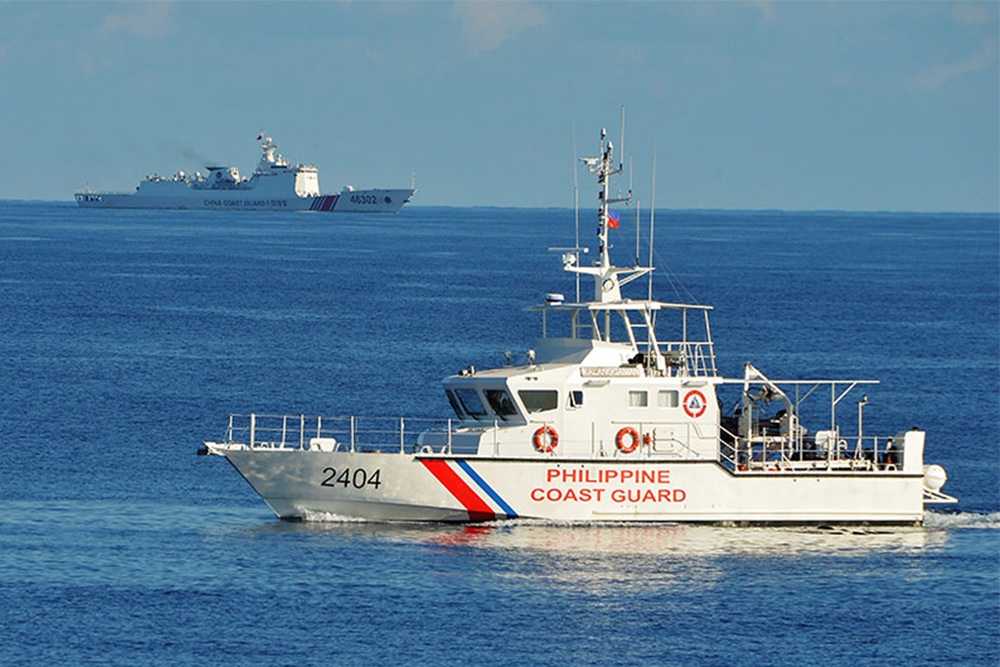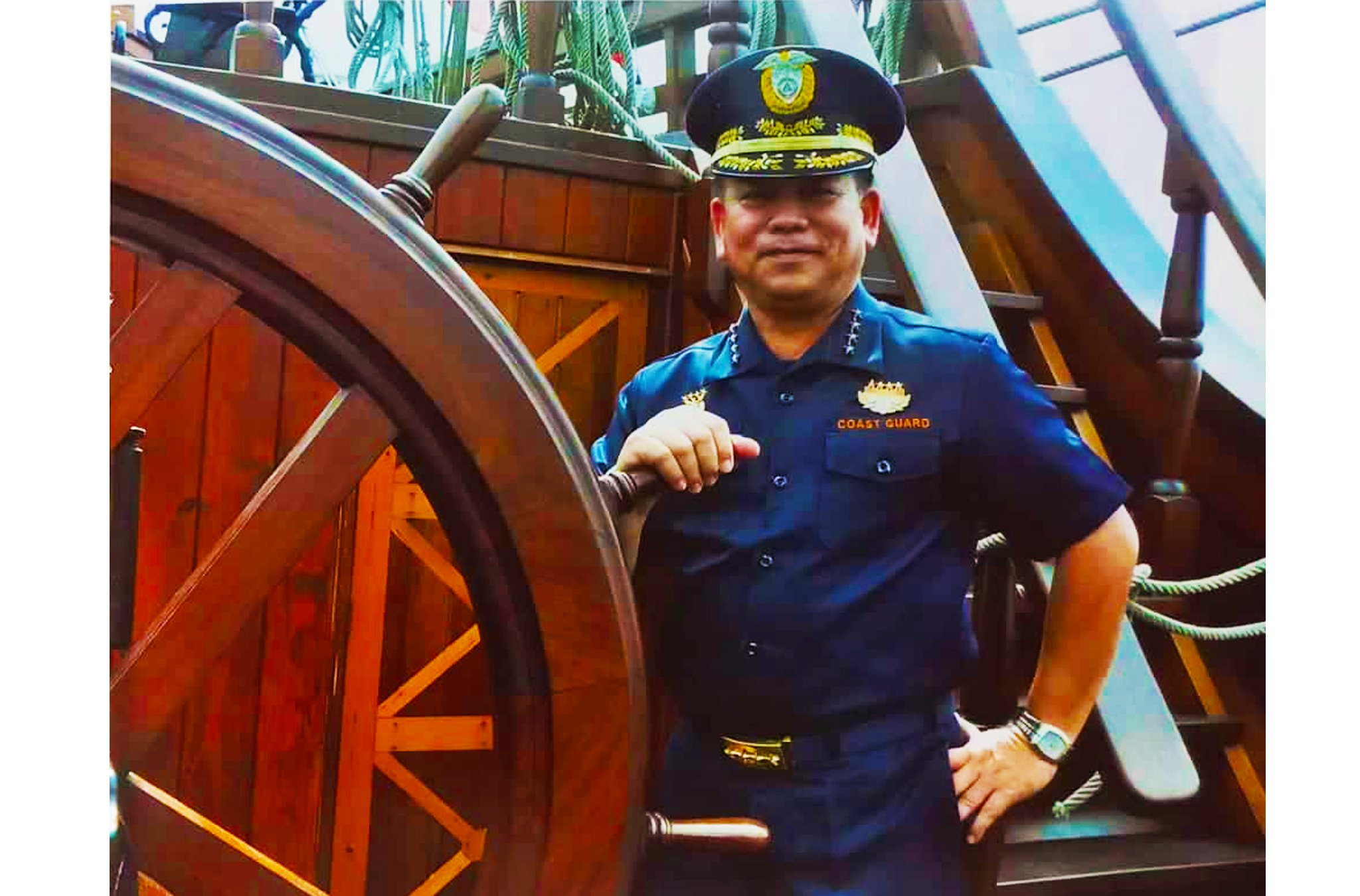It is said that the key ingredients in the effective performance of agency functions are the ability and commitment of its leaders or unit commanders to manage its activities responsibly taking into consideration the vital mission the unit has to perform against the reality of very modest budgetary resources and rigid fiscal and accounting regulations. To achieve this, the following actions are considered priorities: The Command will continue to embark on programs and activities that will further enhance the morale and welfare of Coast Guard personnel.
Continuing implementation of programs that will enhance operational efficiency through systems improvement and avoidance of wasteful pratieces.
Institutional of the so-called leadership by example. Institutional of the principle of Command Responsibility. Strict observance of cost effectiveness, transparency and accountability. Improvement of system of grievances and feedback mechanism. Rationalization of the support system to ensure wider coverage and effective impact of operations and administration. Promotion of unity, team work and camaraderie in all mission performances of PCG units. Good working relationship with partner agencies, nations, and industry associations.
In its external application, responsible maritime governance is viewed as the ability of the agency to effectively and dutifully discharge its functions to ensure the safety and security of the maritime transportation system and the protection of marine environment. Within the limits provided for by law in terms of its safety functions, the PCG must endeavor to be more proactive and instrumental in ensuring that safety will always be paramount in all maritime-related actvities.Close supervision and coordination with domestic shipping operators remain indispensable if the PCG is determined to instill a culture of safety and responsible ship ownership. Foreign ships must be constantly reminded that the Philippines is neither as sanctuary nor a safe haven for substandard ships. Port State Control enforcement should always keep up with the international standards in compliance with the Tokyo MOU.
In maritime navigation safety, it is the primary duty of the PCG to properly maintain all lighthouse stations and to always keep them in their top operational condition. The Maritime Safety Service Command (MSSC) continues to review and update its master plan for the development and upgrade of the existing navigational aids as well as the establishment of more aids to navigation particularly in areas where maritime traffic in dense. Special attention is focused also on establishing additional buoys and floating aids along entrances to major ports and harbors. Floating and submerged wrecks and other hazards to navigation are expeditiously removed to prevent future accidents.In maritime security, the PC continues to provide deterrence to unlawful acts at sea and enforce all applicable laws without fear or favor. Terrorism and other unlawful acts in the sea has now become a global threat to maritime transport. Hence, in cooperation with the OTS and other related agencies, the PCG ensures that sufficient security coverage is laid out for all maritime assets and interests throughout the archipelago.
Finally, in marine environmental protection, the PCG continues to serve as a strong vanguard to preserve, conserve, protect and rehabilitate our precious marine environment and its vast marine resources. It is in this area that linkage with other government agencies, local governments, NGOs, advocasy groups and other interest organizations is strongly encouraged as this will serve as a significant factor in the accomplishment of the PCG mission to achieve a clean and sustainable marine environment. Public interest and support are gained through aggressive implementation of local awareness and environmental consciousness programs.
Development of Doctrines and Maritime Regimes
As a uniformed and disciplined organization, there are inevitable similarities in strategies and approaches between the PCG and the Armed Forces. So as not to re-invent the wheel, best practices and doctrines from the Nave in particular and the AFP in general are constantly reviewed and analyzed to determine its applicability to the distinct role the Coast Guard is performing. With the enactment of the PCG Law, there is a need to fully adopt the implementing Rules and Regulations (IRR) that clearly defines how the new law is applied and to elaborate on the general provisions of the law. Different committies have been duly established to dissect the new PCG law and ensure that all gray areas will be resolved through the said IRR.
In coordination with concerned government agencies, port authorities and shipping organizations, the PCG will continue to identify areas where procedures for the enforcement of security regulations can be adopted. The Command will also assess the current enforcement regime for marine environmental regulations. In search and rescue, the PCG likewise envisions to re-define the PCG's role in relation to the national, regional and local frameworks. Concomitant with the above, there is also a need to pursue the enactment of more national regulations to implement the requirements of international convention which the country is bound to enforce.It is also necessary to comprehensively assess the efficiency in their application including the gravity of penalties to determine whether they serve as effective deterrence. There is also the essential task of drafting more applicable and supporting laws for submission to Congress. Such laws are needed to solidify the PCG's performance of its perculiar functions. Furthermore, the PCG must be able to provide the impetus and basis for the legislature to pursue the adoption by the country of the various international maritime conventions and instrument.
On the other hand, the creation of a maritime regime involves the continuing development of mutually acceptable norms, principles, policies and decision-making process dealing with the various facets of ocean management of the country's numerous waterways to include the ocean. The process normally proceeds from a clear-cut identification of individual responsibilities and corresponding accountabilities of all the major players in the maritime industry. Thereafter, a framework for the seamless coorperation in the areas of safety, security and environmental protection must be clearly established. Possible areas for developing more maritime regimes are the following:
a. Enforcement regime on security.
b. Search and rescue and disaster response regime.
c. Safety management regime.
d. Regime on environmental protection.
e. Law enforcement regime.
The task of maritime regime building will necessarily involve closer coordination and cooperation with the other government agencies which exercise similar jurisdiction or oversight functions. The theory or approach to accomplish this undertaking is to create a confusion-avoidance scheme where participating agencies are knowledgeable about their respective spheres of responsibilities. The objective is to remove "gray areas" in the agencies' relation to other entities. The current situation therefore presents a big challenge not only for the PCG but for the entire government bureaucracy which is characterized by overlapping functions and duplication of efforts.
The continuing development of an effective maritime regime must evolve from a re-evaluation of the present structure and organization of the carious agencies of government with particular interest in the maritime industry to determine their efficacy, usefulness and logical existance. As a member of the maritime cluster, it is imperative for the PCG to have its law fully supported by a comprehensive IRR so that it can contribute to the regime creation with a sense of credibility and permanence. In the process of active anticipation, the PCG continues to harness its capacity and confidence to assure not only the legislators but more so the general public that it deserves greater recognition for its role as the country's premier maritime guardian.



